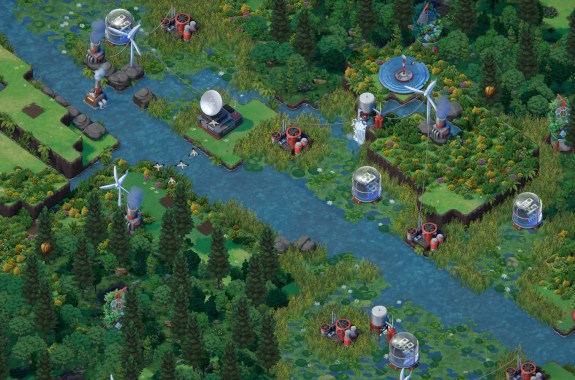This Video Game Prioritizes Restoring An Ecosystem Over Profits
In Terra Nil, a “reverse city-builder,” your goal is to restore a barren wasteland into a thriving ecosystem.
Revisiting Lessons Learned From World Of Warcraft’s Virtual Pandemic
In 2005, a software bug triggered a pandemic in the video game World Of Warcraft. It ended up foreshadowing many aspects of the COVID-19 pandemic.
In A New Animated TV Show, A Clash Over An All-Healing Mushroom
The show’s starring scientist finds a mushroom that can heal any ailment. But powerful people will do anything to stop him from cultivating it.
A Novel Imagines The Inner Lives Of Astronauts On The Space Station
The award-winning novel ‘Orbital’ explores the inner thoughts of astronauts during a single day aboard the International Space Station.
If ‘Interstellar’ Were Made Today, What Would Be Different?
The science advisor for “Interstellar” discusses the film’s impact, and how new information about gravitational waves could have changed it.
A Play About Pregnancy Inspired By Mushroom Research
Playwrights and scientists teamed up to create plays based on scientific research. One of them explores pregnancy through fungal computing.
Our Favorite 2024 Science Books For Kids
You asked for science book recommendations for the kids in your life. Two bookworm experts respond—and share their own favorites.
How Metaphors Help—And Hurt—Science
Metaphors can help us understand complicated scientific concepts. But they can also have a downside.
How Insects Shaped Human Culture Over Millennia
In “The Insect Epiphany,” an entomologist explores the history of insects in art, food, engineering, and more.
Intertwining The Lives Of Moths And Humans Through Music
A pair of musicians wrote a concept album inspired by moths—and found that humans have more in common with the insects than they expected.









